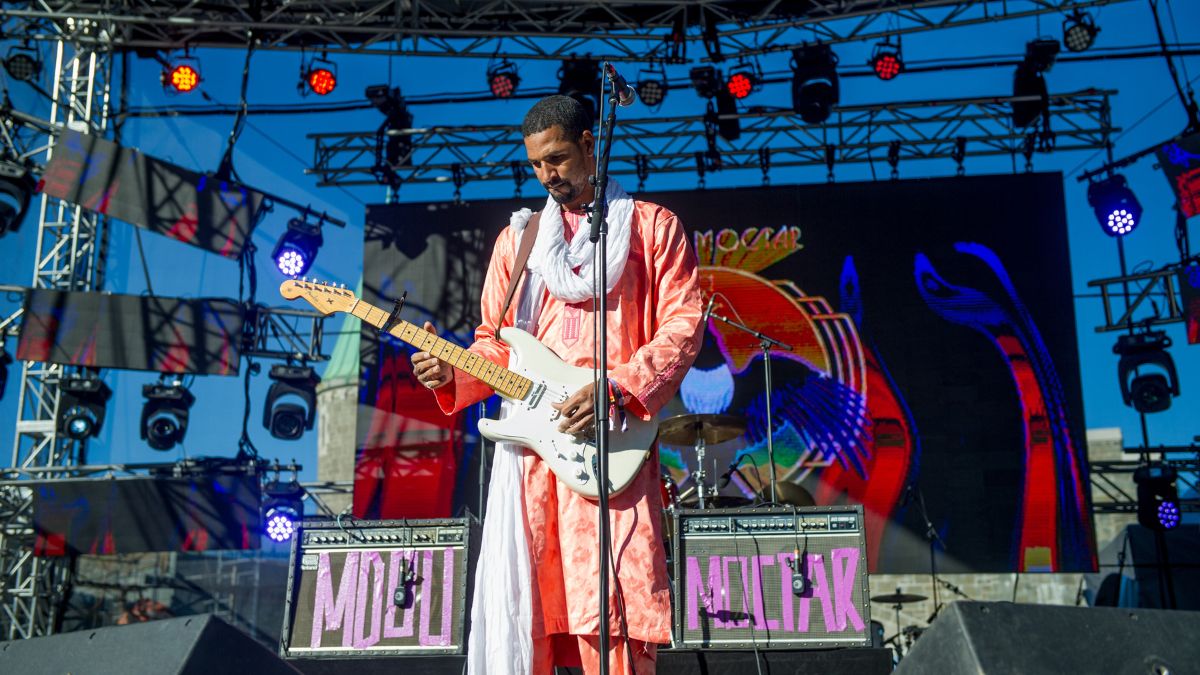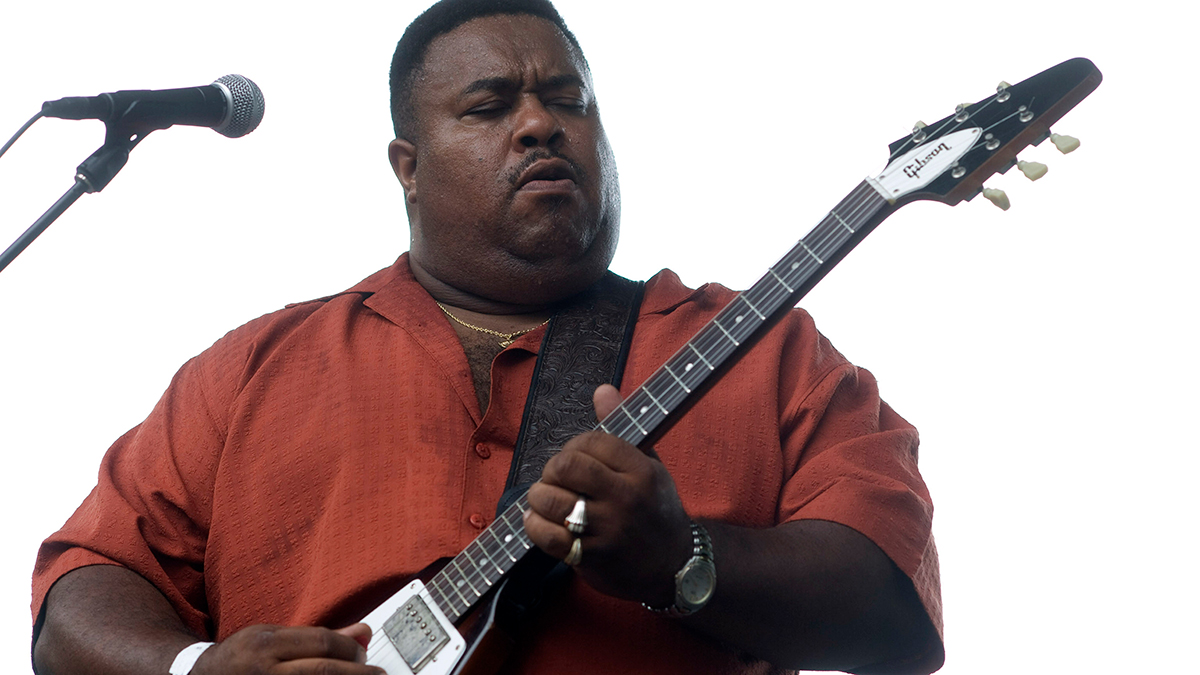“He doesn’t like the sound of new strings. The ones on the guitar for the new album were two years old”: Mdou Moctar prefers old guitar strings – and the Roland Cube is his favorite amp for a very good reason
The gear (or lack of) behind Mdou Moctar's searing signature sound on Funeral For Justice, which fuses Saharan rock music with Jimi Hendrix and Eddie Van Halen flair

By now, Mdou Moctar's ferocious fingerpicking guitar style has established him as an important voice in the contemporary guitar world.
On his latest album, Funeral For Justice, Moctar pushes the boundaries of his songwriting even further, while still retaining his signature guitar sound informed by his home country Niger's music, history, and politics, alongside American guitar heroes such as Jimi Hendrix and Eddie Van Halen.
In the new issue of Guitarist, album producer Mikey Coltun has explained how Mdou's gear preferences shaped the new album's tone.
“Mdou used his American Professional series left-handed white Strat,” he reveals. “We got this in 2018. It’s a newer American-made Strat with Lollar pickups and a Sustainiac pickup at the neck.
“He uses D’Addario NYXL 10s and doesn’t like the sound of new strings. I think the ones that were on the guitar for Funeral For Justice were two years old.”
Despite the deadened strings, Coltun and mixing engineer Seth Manchester still sought to tame Moctar's high-end, opting for a Soldano SLO-100 and a Traynor 4x12 cab.
“Since Mdou doesn’t play with a lot of dynamics, and it’s pretty much just hard fingerpicking on the bridge pickup, there tends to be a lot of bright sizzly highs and not enough clarity,” Coltun says. “The SLO just scoops all the unwanted high frequencies out.”
All the latest guitar news, interviews, lessons, reviews, deals and more, direct to your inbox!
Moctar also used the Roland Chorus Echo RE-501 in the studio for its chorus sound, as it produces a similar chorus to the Roland Cube. As Coltun notes, the Cube is widely used throughout West Africa, as it's battery-powered, lowering the barrier to entry for musicians who don't have access or otherwise have limited access to electricity. It’s also one of Moctar's favorite amps and has accompanied him throughout his career so far.
And as far as Moctar's own thoughts on whether good guitar playing is in the gear, he asserts: “You could be given the best instruments in the world, but if you don’t know how to play well, it’s not going to sound good. However, if you’ve worked a lot and then you start to get some good instruments, it’ll really be something. But it comes down to work.”
For more from Mdou Moctar, plus interviews with Bill Nelson and Larkin Poe’s Rebecca Lovell, pick up issue 511 of Guitarist at Magazines Direct.
Janelle is a staff writer at GuitarWorld.com. After a long stint in classical music, Janelle discovered the joys of playing guitar in dingy venues at the age of 13 and has never looked back. Janelle has written extensively about the intersection of music and technology, and how this is shaping the future of the music industry. She also had the pleasure of interviewing Dream Wife, K.Flay, Yīn Yīn, and Black Honey, among others. When she's not writing, you'll find her creating layers of delicious audio lasagna with her art-rock/psych-punk band ĠENN.

